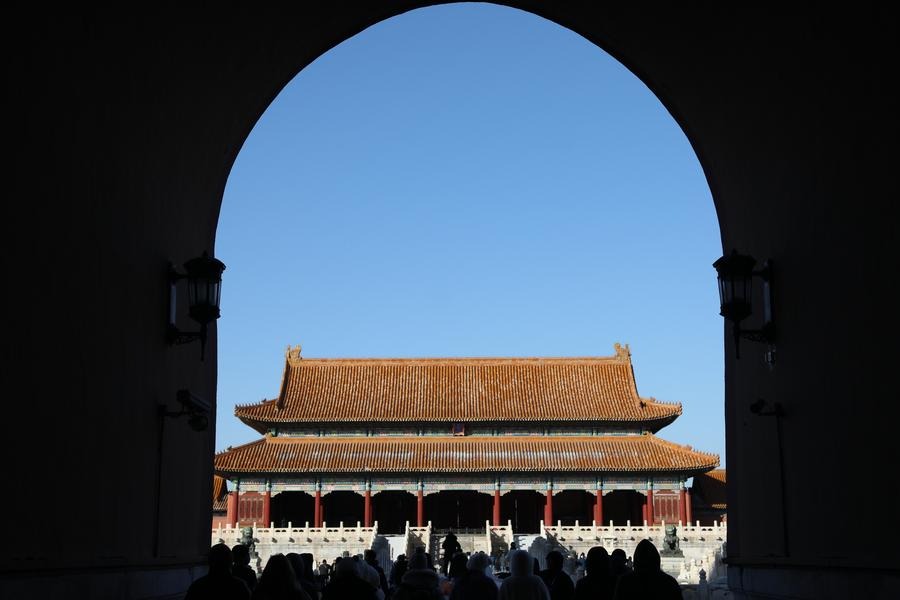Building an inclusive order
Despite the difficulties the world is facing and obstacles the US is creating, Brazil and China will continue on the course of bridging both distance and cultures

Despite the difficulties the world is facing and obstacles the US is creating, Brazil and China will continue on the course of bridging both distance and cultures

Editor's note: The world has undergone many changes and shocks in recent years. Enhanced dialogue between scholars from China and overseas is needed to build mutual understanding on many problems the world faces. For this purpose, the China Watch Institute of China Daily and the National Institute for Global Strategy, Chinese Academy of Social Sciences, jointly present this special column: The Global Strategy Dialogue, in which experts from China and abroad will offer insightful views, analysis and fresh perspectives on long-term strategic issues of global importance.
China has been Brazil's largest trading partner and one of the primary sources of investment since 2009.Trade flow between the two countries reached a record $171.5 billion in 2022, according to the General Administration of Customs of China. Brazil and China established a strategic partnership in 1993, which was raised to comprehensive strategic partnership in 2012. The two countries will celebrate 50 years of establishing diplomatic relations in 2024.
China is Brazil's largest commodity export market and a significant source of productive investment. The presence of Chinese companies in Brazil is growing. A few days ago, the electric car manufacturer BYD announced it was setting up a new unit in the state of Bahia, where a Ford company plant previously existed. Both countries are partners in BRICS and the New Development Bank.
International trade and investment continue to grow. Brazilian President Luiz Inacio Lula da Silva's new government is expected to boost bilateral ties, as he was known for attaching great importance to international relations. In the past, his actions were characterized by promoting multilateralism and cooperation among developing countries.
With a more stable and friendly political climate, Brazil and China have excellent platform for coordination on international issues, such as respect for World Trade Organization rules; a similar position on combating global warming and climate change; the importance of multilateral development banks prioritizing the infrastructure projects; and cooperation in science and technology, etc. They also agree on decisions taken at the United Nations and the search for peaceful solutions to international conflicts.
Despite the great opportunities for cooperation between China and Brazil, it is essential to point out that the current international situation is very different from that during Lula's last visit to China in 2009, when Brazil, India, China and Russia created the BRIC group (it became BRICS after South Africa joined it in 2010), influenced the redistribution of the International Monetary Fund quotas, established the New Development Bank, managed to elect the WTO director-general and supported China's initiative to create the Asian Infrastructure Investment Bank.
In some respects, the world has changed for the worse in the past seven years. The era of cooperation has given way to a period of confrontation. We are witnessing the resurgence of a solid conservative and nationalist far-right movement. In several countries around the world, xenophobia and protectionism have advanced. Japan, which had limited military spending since being defeated in World War II, has changed the interpretation of its so-called pacifist Constitution and is ramping up its militarization efforts.
However, the most significant change in the international order has been the US. With the rise of Donald Trump in 2017, the United States began to circumvent the rules it created as a winning power during World War II. First, it began to attack the integration of the global economy, not only by creating a series of protectionist measures against imports from different countries but also by paralyzing the work of the WTO Appellate Body.
Since 2019, the US has blocked the appointment of new members, emptying the body that mediates disputes between countries. Instead of integration, the US today advocates decoupling its economy from China-based supply chains.
In addition to the trade war, a technology war has been launched by the US, aimed at preventing Chinese companies from accessing state-of-the-art semiconductors. In addition, the US National Defense Strategy of 2017 painted China as the main threat to the country's security. The US government pressured several countries to block Huawei's participation in the 5G communication infrastructure.
The US also activated the Quad, bringing together India, Japan, Australia and the US to contain China in the "Indo-Pacific" context. Something similar has happened with the creation of AUKUS, an articulation mechanism that brings together the US, the United Kingdom and Australia.
This new international context has the potential to constrain Sino-Brazilian relations, especially with the actions taken by the US to contain China in the Western Hemisphere. There are numerous statements by General Laura Richardson, commander of the US Southern Command, about what she considers a Chinese threat in the region, from investments in ports and hydroelectric plants, to the Atucha III nuclear plant in Argentina or even to China's collaboration in aerospace technologies with Brazil, Argentina and Chile. The US has promised to incorporate Latin American countries in the restructuring of production chains, the so-called near-shoring, in an attempt to oppose China's productive investments in the region.
Despite the enormous difficulties the international order is facing, the relationship between Brazil and China will follow its due course. The ties built over five decades will become stronger, given the great economic interdependence and the potential to advance in new fields of cooperation that could boost the high-quality development of both societies. Brazil and China are poised to build a cooperative and inclusive international order, together with those countries sharing similar views. Geographical distance and cultural differences are already being bridged through coordination between governments, scholars, and business people. The two countries are contributing to a greater mutual understanding between peoples.


The author is a professor of international political economy at the Sao Paulo State University. The author contributed this article to China Watch, a think tank powered by China Daily.
Contact the editor at editor@chinawatch.cn.


































